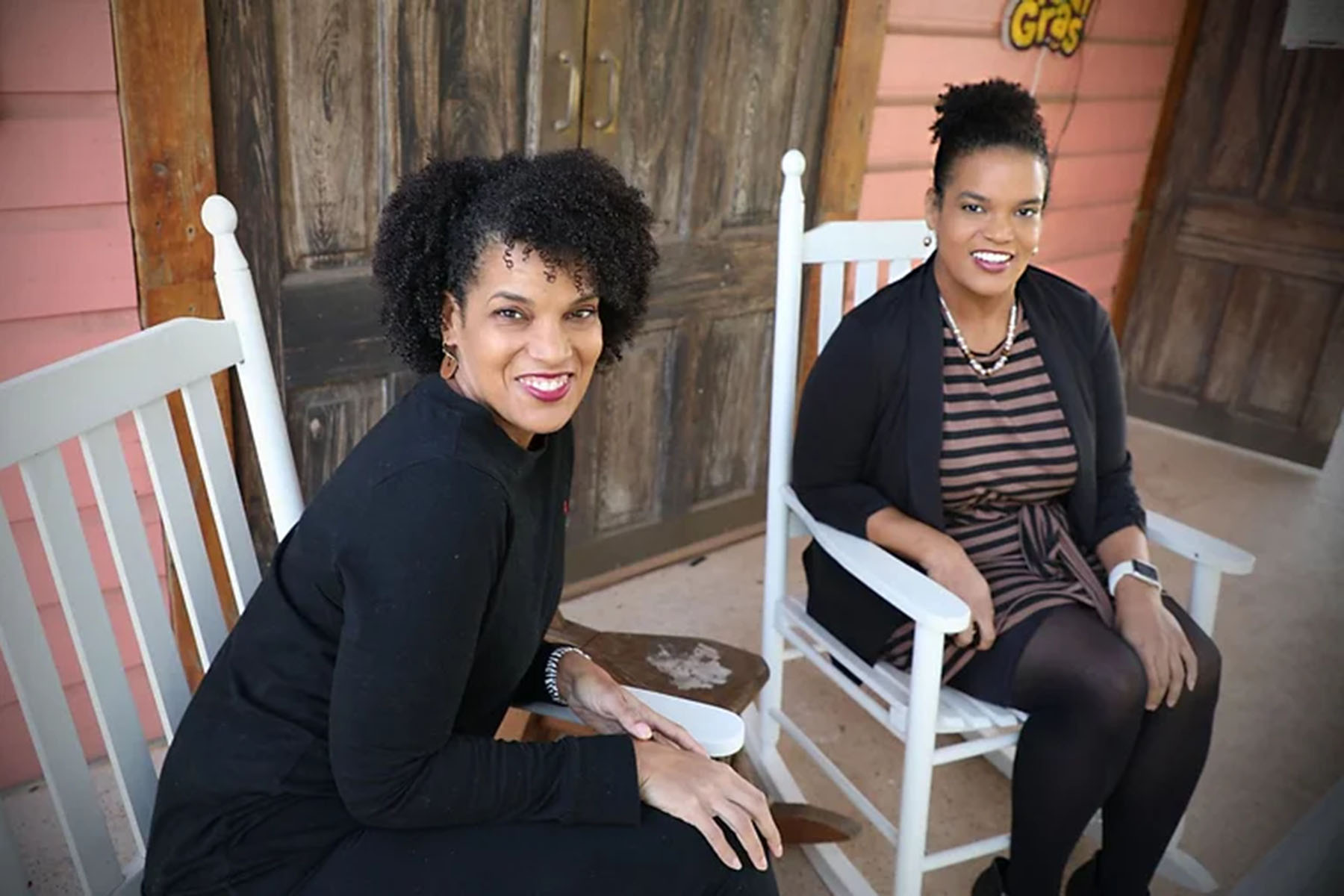Twin sisters Jo and Joy Banner are celebrating a win in their fight against big industry in Louisiana’s “Cancer Alley.” In a court hearing this month, Judge J. Sterling Snowdy ruled against St. John the Baptist Parish, declaring a 33-year-old industrial zoning ordinance null and void based on a procedural issue. The decision effectively stands in the way of a proposed grain export facility that would compound pollution in the area and threaten its historic landscape.
“This is a big moment for [our] parish, named after St. John the Baptist, who fought corruption. And here we are, finally resolving a corrupt act that happened. So we can’t lose sight of that. We’re just getting started,” Jo Banner told The 19th.
The 19th previously reported on the sisters’ struggle to protect the health and heritage of their community, which the family has inhabited since enslavement, from the grain export terminal proposed by Colorado-based developer Greenfield Louisiana, LLC.
The sisters said they know the fight is far from over. Not only are they up against Greenfield, but local officials in their own backyards. The court ruling does not bar council members from changing the zoning on the land again. Joy and Jo Banner are still raising their voices, petitioning the U.S. Army Corps of Engineers to deny Greenfield a permit to build their facility and planning Joy’s run for parish council.
For now, though, they are celebrating the victory, which they say is a win not only in getting in the way of the project, but in demanding transparency from government officials and holding them accountable. The lack of transparency prompted Joy’s decision to run for parish council. She plans to run for the district currently represented by Councilman Kurt Becnel, who expressed his support for Greenfield in a 2022 letter to the editor in The Advocate, a Louisiana newspaper.
“The council can no longer do anything in secret anymore,” Jo Banner said. “All eyes are on them.”
-
Previous Coverage:
The basis of the lawsuit draws from a 1990 zoning ordinance that changed a tract of farmland from residential zoning to industrial. Then-Parish President Lester Millet Jr. was later convicted of money laundering, extortion and racketeering charges, connected to his efforts to assist petrochemical giant Formosa in bringing a facility to the parish. The plan fell through, but only after some residents were forced to leave. The Banner sisters were among those who faced losing their homes to Formosa, which has since purchased land in neighboring St. James Parish.
“There was never even an apology. There was never even a recognition of what happened. This zoning change is a start for us. We still have to go back and heal what happened,” Jo Banner said.
“We’re not the same 10-year-old girls that we were in the ‘90s when they tried this,” she added.
Joy Banner said that parish and state officials had been talking with Greenfield behind closed doors for years. She cited emails between Greenfield and local officials stating that they did not want knowledge of the project to get out into the community.
The sisters’ fight has attracted local, national and international attention. Dr. Rachel Levine, assistant secretary for health for the U.S. Department of Health and Human Services, wrote a letter last week urging the U.S. Army Corps of Engineers to consider how the grain export facility could exacerbate environmental burdens and health inequities the parish faces.
The sisters have also garnered the support of the National Trust for Historic Preservation, which listed the West Bank of St. John the Baptist Parish as one of its 11 most endangered historic places, as the proposed facility site could contain burial grounds for enslaved people and archaeological artifacts from three plantations. They also testified before the United Nations last year.
Greenfield did not respond to a request for comment, but a statement to local newspaper L’Observateur alludes to a longer battle: “While we are disappointed with this outcome, we remain fully committed to resolving this issue and moving forward with our plans to build the grain export facility, including by proceeding with the ongoing permitting process.”
Joy and Jo Banner said that parish council members, many of whom are Black, have for too long been complicit in structural and environmental racism. They have supported Greenfield before bringing the proposal to their constituents, and denied the sisters’ requests to speak before the council. Jo Banner said that members of their parish council have treated them poorly, and elevated big industry and White residents’ concerns above theirs in the majority-Black parish. She said that one councilman in particular, Lennix Madere Jr., has screamed at them and refused to allow them to speak in meetings.
“We’ve seen these same Black council people ignore us, but then come down when White community members are fighting and hug them and say thank you for all that you’ve done. They do it right there in the meetings,” she said. “The way that they treat us, the difference is like night and day. It’s time for us to call out anybody who uses racism.”
Councilmembers Madere and Becnel, both Black men who have publicly expressed support for the grain project, did not immediately respond to requests for comment.







